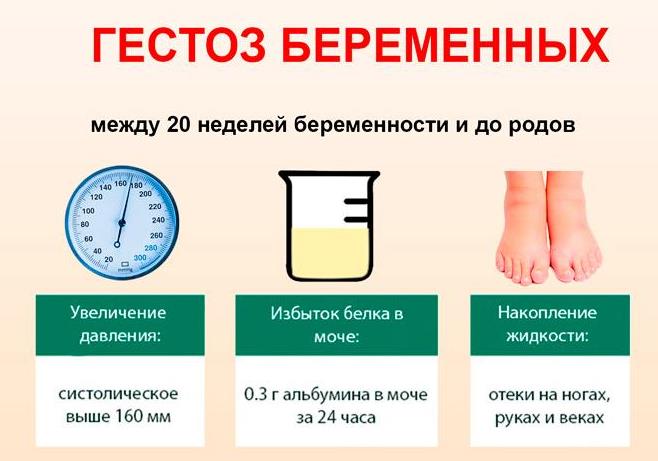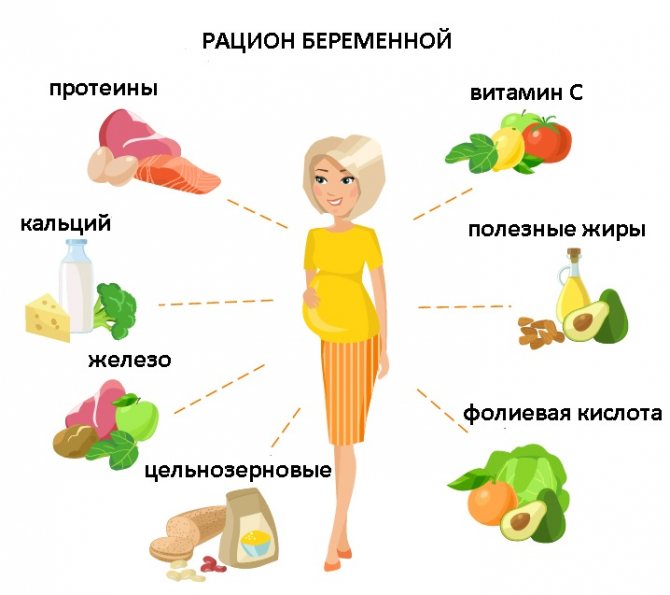Main reasons
Nausea in the morning in women who are sexually active, coupled with delayed menstruation, is often a sign of pregnancy. Why does it occur?
After conception, a woman’s body undergoes serious changes. In the first weeks, he recognizes the embryo implanted in the uterus as a foreign body. To prevent rejection of the embryo, the hormone progesterone is intensively produced. Its task is to maintain pregnancy and prevent its spontaneous termination.
Hormonal surges cause a lot of unpleasant symptoms - from changes in the perception of smells and heartburn to vomiting. But not all expectant mothers experience nausea; much depends on the individual characteristics of the body and pregnancy management tactics.
In most cases, nausea occurs at 5–6 weeks of gestation. How long it lasts depends on a number of factors:
- the period of appearance of the first signs of toxicosis;
- the presence of chronic diseases of the gastrointestinal tract;
- one fruit or more.
Other manifestations of toxicosis along with nausea:
- vomit;
- heartburn;
- excessive salivation.

Vomiting of pregnancy: classification
The classical classification defines vomiting in pregnant women as mild, moderate and severe.
A similar condition is often observed in at least half of pregnant women at various (mostly early) stages of pregnancy. With mild vomiting, vomiting occurs at least five times a day. Most often this happens in the morning and after eating. At the same time, the woman’s pulse does not increase significantly; as a rule, it does not increase more than 90 beats per minute. The color of the skin does not change and the woman’s body temperature does not increase.
This degree of severity of vomiting is observed in the majority of women. It does not require any special treatment and most often goes away on its own. In only one woman in ten, this degree of vomiting can develop to a more complex and severe stage.
The middle stage of severity of vomiting is characterized by increased frequency of vomiting up to ten times a day. At the same time, there is an increase in heart rate and an increase in blood pressure. It is possible to increase body temperature to 37.2°C. The bowel movements do not become more frequent throughout the day.
The woman’s general well-being worsens, she begins to experience weakness, becomes nervous and excitable. Only timely treatment begins makes it possible to cope favorably with the situation.
When vomiting reaches a severe level, the frequency of vomiting reaches 15 times a day, vomiting can be almost continuous. There is a sharp drop in blood pressure and a strong increase in heart rate to 100 beats per minute and even higher. Body temperature rises to 38°C and even higher. The body begins to suffer from dehydration, the woman feels general exhaustion. When vomiting reaches this stage of severity, termination of pregnancy is indicated. To correctly diagnose the described condition, a method is used to carefully and daily monitor the woman’s condition.
Why do you feel sick after eating during pregnancy?
Changes in the level of hormones in the blood after conception, a decrease in the reserves of vitamins and minerals in the body change the perception of food. Fatty foods have a negative impact on your health. And while some women feel nauseous only in the morning, others feel nauseous after every meal during the day.
During the period of bearing a child, the whole body works in an enhanced mode, with double load, so such a reaction is possible.
In the early stages
Nausea in the 1st trimester, that is, up to 11–12 weeks of gestation, can have the following reasons:
- eating unhealthy food, unbalanced diet;
- thyroid diseases;
- deficiency of vitamins, minerals, important microelements;
- hormonal imbalance;
- severe weakening of the immune system;
- hereditary predisposition;
- The pregnant woman is over 30 years old.

In the later stages
In the 2nd and 3rd trimesters, the body already gets used to the fetus, sharp jumps in hormone levels disappear. But even in the later stages, a pregnant woman may feel sick. The reason is late toxicosis. This is a complication of pregnancy.
Symptoms of toxicosis in the second or third trimester:
- nausea and vomiting;
- the appearance of edema;
- high blood pressure;
- the presence of protein in the urine;
- convulsions.
Discomfort is also possible for other reasons:
- development of diseases of internal organs - digestive system, heart;
- endocrine pathologies, for example, diabetes;
- renal failure;
- diseases of the nervous system;
- abnormal position of the fetus;
- preparing the uterus for the upcoming birth.
Preeclampsia is a condition that is dangerous for the expectant mother and fetus. Requires immediate medical attention and treatment.
If a woman simply feels sick, without signs of pathology, the reason may be the pressure of the enlarging uterus on the stomach. The growth of a child in the womb leads to displacement of internal organs, which disrupts intestinal motility. The consequence is problems with bowel movements, constipation, which leads to intoxication of the body and nausea.
Nausea in later stages is often caused by improper food intake. The expectant mother should eat often and in small portions. Large amounts of food unnecessarily load the stomach, which causes discomfort.

Temperature during pregnancy, how to bring it down. Basal and normal temperatures
Temperature during pregnancy, how to bring it down and normal temperature
The first weeks of pregnancy usually pass in joyful anticipation of a miracle. The expectant mother sensitively monitors changes in her well-being, especially if the pregnancy is long-awaited. And one of the reasons for concern is the change in body temperature. Any deviation from the cherished mark of 36.6 °C is immediately regarded as a sign of illness and a reason to immediately run to the doctor. But this is not always true. So, what temperature is considered normal during pregnancy?
A slightly elevated temperature in the early stages of pregnancy is considered normal, as it has understandable physiological reasons. Under the influence of changes in hormonal levels and an increase in progesterone levels, the temperature rises to 37.0 - 37.1 ° C and can remain at these levels for quite a long time. Also, an increase in the body temperature of the expectant mother in some cases is a consequence of simple overheating - just walk around the city for a couple of hours in the sun or carelessly go to the beach, and by the evening the thermometer can even jump to 38 degrees. But this temperature quickly subsides and is not accompanied by symptoms characteristic of inflammation.
Pregnancy and basal temperature
Many women acquire the habit of measuring their temperature daily even before pregnancy. At this stage, it is necessary to determine ovulation and calculate the most favorable time for conception. Further regular measurements make it possible to pre-diagnose whether pregnancy has occurred or not.
Basal temperature during pregnancy remains the same as during ovulation - 37 - 37.4 ° C, in some women it can reach 38 ° C. There is no need to worry, this is normal. If conception does not occur, then 12-15 days after ovulation the indicators drop to 36.6 - 36.7 °C.
But this method does not provide 100% confidence in pregnancy; additional research is needed for an accurate diagnosis.
In the early stages, a temperature of up to 37.3 °C is considered normal. Basal temperature during pregnancy ranges from 37 to 38 °C.
When fever during pregnancy is a symptom of illness
During pregnancy, a temperature of 37 and even up to 37.5 is considered normal in the early stages. This is provided that there are no other symptoms indicating the disease. However, during the nine months of waiting, anything can happen - from a simple cold to a serious infection, and then an increase in body temperature will become a signal of an onset of illness.
In the first trimester, the cause of high temperature, above 37.5 - 38.5 ° C, is acute respiratory infections, influenza and sore throats.
This is explained by a slight decrease in a woman’s immunity during pregnancy - nature took care of the baby and provided mechanisms for suppressing the activity of the mother’s immune system, so as not to cause premature rejection of the “foreign” body from the mother’s body.
But all kinds of viruses and bacteria happily take advantage of these “good intentions” of nature, and very actively begin to attack the “weak points” of the expectant mother. More often it is the nasopharynx, and that is why sore throat or ARVI so often plague women in an interesting position.
But not only acute respiratory infections can cause high fever. So, at a period of 3-5 weeks, a temperature of 37.5 - 37.8, accompanied by intense pain and bleeding, may be a symptom of an ectopic pregnancy or miscarriage.
High temperature during pregnancy (especially the second and third trimester) is not only due to a cold. Almost all acute inflammatory diseases - pyelonephritis, cystitis, gastroenteritis, pneumonia, herpetic infection and many others, are accompanied by severe hyperthermia - over 38.5 ° C.
Low-grade fever (37.3 – 38.0) can be a sign of exacerbation of a chronic inflammatory process, as well as a symptom of such serious diseases as cytomegalovirus or tuberculosis. Therefore, any increase in temperature is a sufficient reason to visit a doctor, in some cases it is better to do this immediately.
Degrees of toxicosis
If you constantly feel sick during pregnancy, or vomit frequently and profusely (more than 10 times a day), you should contact the clinic.
The feeling of discomfort may vary in intensity. Toxicosis in pregnant women is classified into the following degrees:
- Normal. Nausea and vomiting occur less than 10 times a day. A woman should not be disturbed; she needs to drink more clean drinking water to prevent possible dehydration.
- Average. Vomiting occurs more than 10 times a day. The help of a doctor is required; often the woman is hospitalized in a hospital and prescribed treatment.
- Heavy. When a woman vomits more than 20 times a day. A hospital stay is mandatory, since the condition is dangerous due to dehydration and serious consequences for the expectant mother and fetus.
Vomiting during pregnancy: treatment
Treatment of vomiting during pregnancy is determined depending on the severity of the initial condition. For mild stages of vomiting, outpatient treatment is sufficient. At the same time, the woman’s body weight, its possible changes, as well as the analysis of the analyzed urine for the presence of acetone in it are monitored. In complex therapy of the described condition, means of influencing the central nervous system should be used. It is mandatory for the woman to remain in bed during treatment.
Anti-vomiting tablets for pregnant women
The consequences of liver damage are prevented by the use of methionine in the treatment of vomiting in pregnant women. Its antitoxic properties are activated by enzymes, hormones and vitamins.
Sorbent agents for the treatment of vomiting in pregnant women include Smecta, activated carbon, Neosmectite. In order to restore the salt balance, it is recommended to use Regidron, Gidrovit. In the event that vomiting during pregnancy
What to do to make you feel better
To avoid nausea during pregnancy, proper nutrition is important. You need a full, balanced breakfast even if you have no appetite. When carrying a child, the body requires large quantities of nutrients.
It is better to include in your diet:
- fermented milk products rich in calcium;
- porridge;
- fruits and vegetables.
Other recommendations to help improve your well-being:
- daily walks in the fresh air;
- elimination of stress and anxiety;
- taking a vitamin complex (pre-agreed with your doctor);
- do not spend a lot of time in front of TV and computer.

What pills will help?
If you cannot eliminate the discomfort on your own, you should consult a doctor. If indicated, medications may be prescribed.
We recommend reading the article about toxicosis during early pregnancy.
From it you will learn about the causes and timing of the onset of toxicosis, characteristic symptoms, possible complications, treatment, nutritional recommendations, the effectiveness of folk remedies and preventive measures. Why does heartburn occur during pregnancy? Read here.
When does nausea occur during pregnancy?
Usually, the expectant mother begins to feel unwell closer to the second month of pregnancy and continues to experience all its “delights” over the next 8 weeks.
There are also cases when a woman may feel nauseated already in the first days.
How long does it take to feel relief and forget about the symptoms of toxicosis? Everything is very individual, but in most cases, symptoms disappear by the beginning of the third trimester.
It is important to listen to your body and, at the slightest suspicion of pathology, contact your gynecologist.
Nausea during pregnancy, which accompanies you in the later stages, is a symptom of a serious illness that can lead to irreversible consequences.
When to see a doctor
If nausea in a pregnant woman constantly or more often ends with profuse vomiting and occurs more than 10 times a day, this is a reason to consult a gynecologist.
Urgent medical attention is required if vomiting is accompanied by the following symptoms:
- high pressure;
- headache;
- general weakness;
- fainting state;
- drowsiness;
- blood in the vomit;
- increased body temperature;
- swelling.
Timely visit to the clinic and hospitalization of the pregnant woman in a hospital will help to avoid serious complications.
Cause of vomiting during pregnancy
The exact causes of vomiting in pregnant women have not been established by modern medicine. Among the factors contributing to the development of this condition, medical researchers note diseases of the organs and systems of the gastrointestinal tract, liver disease, dysfunction of the thyroid gland, as well as bronchial asthma. There are theories that explain the occurrence of vomiting in pregnant women by factors of an allergic nature. Opinions are also expressed regarding the possible poisoning of women with metabolic products, as well as the impact of mental illness on the functioning of the gastrointestinal tract.
Vomiting due to toxicosis of pregnant women
Vomiting during toxicosis in pregnant women is a typical occurrence. It is determined by three degrees of severity, according to the symptomatology described by the corresponding degrees of severity of vomiting. Drugs to eliminate the consequences of toxicosis accompanied by vomiting can only be prescribed by a qualified doctor; a woman should not carry out treatment on her own. In case of the most severe degree of toxicosis, the woman should be hospitalized for observation in a hospital setting. When vomiting develops into a permanent stage, there is a sharp deterioration in the woman’s general condition. Possible metabolic disorder. There are situations in which a woman cannot take drinking water, since this only worsens her general condition. If the treatment does not produce the desired result, there may even be an indication for early termination of pregnancy.
Vomiting, fever in pregnant women
The combination of fever and vomiting during pregnancy indicates the impact of infection on the body. Also, similar symptoms are characteristic of food poisoning. Treatment in these cases is recommended as typical, although it requires special consideration of the characteristics of the woman’s condition and the timing of gestation. It is recommended to drink plenty of fluids and go on a diet. One should take into account the fact that fasting is contraindicated for pregnant women in principle. It is recommended to use a vitamin-mineral complex to eliminate the consequences of this condition.
Vomiting and diarrhea in a pregnant woman
If a combination of vomiting and diarrhea occurs in a pregnant woman, this may indicate the development of various diseases in the woman’s body. The exact cause can only be revealed by a medical examination, but it is presumably possible to limit their possible range.
Vomiting and diarrhea in a pregnant woman can be caused by an intestinal infection. The main danger of this condition lies in possible dehydration of the body. If there is such a need, the doctor will prescribe measures to maintain the water-salt balance in the body. At the same time, antibiotics may be prescribed. They are selected by a doctor and for safety reasons for use for the fetus.
The simultaneous occurrence of diarrhea and vomiting may be a sign of arterial hypertension. In this case, no special treatment is required and the symptoms of the disease can disappear on their own. However, you should report them to your doctor to prevent dehydration. Similar symptoms observed in the second half of pregnancy may indicate circulatory disorders in body tissues and internal organs.
Pregnant, vomiting blood
Vomiting blood during pregnancy indicates disturbances in the woman’s gastrointestinal tract, causing internal bleeding. The intensity of bleeding is determined by the total volume of blood released. This condition poses a danger to a woman’s life.
Vomiting bloody discharge may indicate preeclampsia. This condition is accompanied by high blood pressure, headaches and visual impairment. Most often this occurs in the second half of pregnancy. Preeclampsia is mainly observed in women during their first pregnancy. Appropriate measures should be taken to ensure that this condition does not develop into eclampsia, which is dangerous for the body of the woman and her child.
When a pregnant woman experiences vomiting of blood, it is difficult to give her exact advice on what she should do. It is best to consult a doctor to accurately determine the causes of this condition and prescribe the correct treatment.
Vomiting of bile in pregnant women
Vomiting of bile during pregnancy occurs mainly in the morning, when the stomach is not yet full. In order to alleviate a woman’s condition and prevent possible consequences of vomiting, it is recommended that a woman have breakfast in the morning without getting out of bed. You can make yogurt or wash an apple and limit yourself to such a light breakfast.
In the event that vomiting with bile secretions is observed some time after eating, there is no longer any need to talk about the simple consequences of toxicosis. The reasons may be as follows:
- development of inflammation in the pancreas;
- acute forms of chronic liver diseases;
- inflammation of the gallbladder;
- food poisoning;
- intoxication of the body.
Severe vomiting during pregnancy
Due to severe vomiting, a pregnant woman loses body weight, and her body also becomes dehydrated. In order to determine the severity of vomiting, a clinical examination should be performed, as well as a series of laboratory tests. It is also important to conduct a liver examination using ultrasound and assess the general condition of the pelvic organs and the gestating fetus.
In severe cases of vomiting, the woman should be treated in a hospital. A woman should be treated comprehensively, addressing all aspects of pathogenesis.
Evening nausea during pregnancy
It is impossible to say exactly at what stage toxicosis appears in the evening, since it does not depend on the duration of pregnancy, but on the state of health of the expectant mother. Most often, attacks of nausea that only occur in the evening or at night are a consequence of poor nutrition.
This condition can also be a consequence of a disturbance in the functioning of the digestive system. If you have chronic gastritis or pancreatitis, then there is a high probability that you will suffer from bouts of nausea in the evenings.
Of course, the expectant mother should remain calm throughout the day in order to feel good before going to bed. Stressful situations can provoke not only nausea, but also bouts of vomiting. And this is a vicious circle.
That is, a pregnant woman is nervous during the day, which unsettles her, and as a result, she feels bad in the evening and without enough sleep, she can be nervous again the very next day.
Nausea in the second trimester of pregnancy
In a normal pregnancy, the second trimester can be called the “golden” trimester. At this time, nausea and weakness recede. The pregnant woman is already getting used to her new condition.
Strength and desire appear to take more walks and spend quality time for yourself and your baby. But there are women who are a little less fortunate. Sometimes nausea during pregnancy occurs at this time.
https://www.youtube.com/watch?v=tvdOzHE9UXA
Even if at some point in the first trimester she did not appear. If we are talking about a mild illness, then there is most likely no reason for concern. If poor health becomes a constant companion, you should immediately consult a doctor.
It is worth paying attention to the fact that unpleasant sensations associated with toxicosis may indicate the presence of any chronic diseases in a woman. You need to undergo an examination to make sure that internal organs such as the heart, liver and kidneys are functioning normally.
If the symptoms do not disappear, but become even more pronounced, it’s time to sound the alarm. See a doctor urgently! In the second trimester of pregnancy, the risk of late toxicosis increases. This is very dangerous for both the expectant mother and the child.
How to eliminate nausea during pregnancy
If your attacks of nausea are not pathological, then they can be stopped on your own. The first and most important thing is the diet of the expectant mother.

During toxicosis, it is quite difficult to think about food, but if you skip meals, this will only worsen the situation.
It is necessary to follow the principles of proper nutrition:
- Breaks between meals should not be more than 3 hours. This is especially true for breakfast. The feeling of hunger provokes nausea and dizziness.
- Avoid fried and salty foods. Heavy food is not good for either mother or child.
- Water balance. Dehydration is one of the causes of nausea. But do not forget that swelling may appear during pregnancy, so you should not overuse it. The generally accepted norm is 2-2.5 liters. Water a day will be enough for good health.
- Listen to your body. He will tell you what you are missing, naturally, within reason.
Nausea in later stages
When a woman first encounters toxicosis after the second trimester, this is already pathological nausea during pregnancy. At what time does gestosis appear and what does it entail?
Preeclampsia is characterized by the following conditions in a pregnant woman:
- swelling;
- low or high blood pressure;
- frequent bouts of vomiting;
- preeclampsia and eclampsia;
- dehydration;
- vision problems;
- protein in urine.
The more pronounced the symptoms of gestosis, the more complicated the situation and requires immediate hospitalization of the pregnant woman. Only a qualified specialist can prescribe adequate treatment. And the earlier the diagnosis is made, the more effective it will be.
Consequences of untreated gestosis:
- disturbances in brain function, including edema;
- pulmonary edema;
- disruption of the heart, liver and kidneys;
- death.









